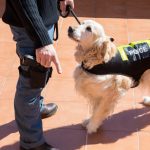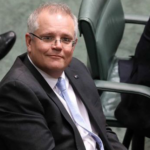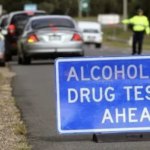New Laws Claim to Make it Easier for Children to Testify

Testifying in sexual assault cases can be a difficult and confronting experience – especially for children.
But the NSW government aims to make the process less traumatic by trialling new ‘Children’s Champions’ in the Downing Centre and Newcastle District Courts from March 2016.
Child witnesses will also be able to pre-record their evidence as part of the new laws, which aim to minimise the stress of being questioned about sensitive topics.
However, existing legal provisions which largely replicate these ‘new’ measures raise concerns about their fairness and effectiveness.
The Child Sexual Offence Evidence Pilot
The Criminal Procedure Amendment (Child Sexual Offence Evidence Pilot) Bill 2015 was introduced into Parliament last week by NSW Attorney-General Gabrielle Upton.
It aims to implement recommendations of the 2014 Joint Select Committee into the Sentencing of Child Sexual Assault Offenders, which included the introduction of measures to reduce the stress of court proceedings for vulnerable child witnesses.
If the Bill is passed, The Department of Justice Victims Services will be allowed to appoint a panel of ‘Children’s Champions’, who whose job will be to communicate with children and explain questions put to them. They will also be allowed to explain the responses provided by the child witness.
Due to their sensitive role, Champions will be required to have a tertiary qualification in psychology, social work, occupational therapy or speech pathology.
Pre-Recorded Evidence
The new laws also contain provisions enabling children to give evidence at a pre-recorded hearing.
The new laws essentially allow children under 16 to give the evidence-in-chief in the presence of a police officer or other investigating official at a pre-recorded hearing. Children over 16 may also be allowed to give evidence in this way if the Court believes it is in the interests of justice.
Cross-examination will be given using CCTV facilities – where the child answers questions from a remote witness room.
A Necessary Measure?
The Attorney-General has voiced her strong support for the measures, saying that allowing victims to pre-record their evidence as early as possible will ‘dramatically reduce the stress and trauma of being part of the court process.’
But while the prospect of easing the emotional burden placed on child witnesses may seem inviting, many people who do not have experience in the legal system may be unaware that the law already contains many of the proposed provisions.
For instance, section 306S(1)(a) of the Criminal Procedure Act 1986 states that ‘vulnerable persons‘ (meaning children and cognitively impaired persons) are able to give evidence of a previous representation:
‘wholly or partly in the form of a recording of the previous representation made by an investigating official of the interview in the course of which the previous representation was made and that is viewed or heard, or both, by the court.’
The Act also contains provisions under section 306U which state that vulnerable persons can give their evidence-in-chief in the form of a recording. This provision is identical to the proposed amendments regarding the giving of evidence by children in pre-recorded hearings.
Furthermore, section 306ZB of the current Act states that:
‘a vulnerable person who gives evidence in any proceeding to which this Division applies is entitled to give that evidence by means of closed-circuit television facilities or by means of any other similar technology.’
This section also allows a court to prohibit a person from testifying in this way, but states that it can only do so ‘if it is satisfied that there are special reasons, in the interests of justice, for the vulnerable person’s evidence not to be given by such means.’
And, while Children’s Champions are an appealing idea, section 294C of the Criminal Procedure Act says that a complainant in a sexual assault case is allowed to have a support person present, which may include ‘a parent, guardian, relative, friend or support person of the complainant, or a person assisting the complainant in a professional capacity.’
It is therefore questionable whether the Attorney-General’s proposals will truly make giving evidence easier for child witnesses – or whether it is simply yet another case of the government introducing duplicitous and unnecessary laws, in the hope of winning public support.
The three year trial will begin on the 31st of March 2016 and is expected to last for three years.






